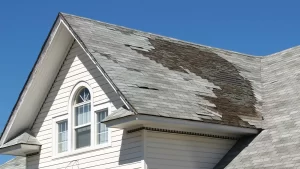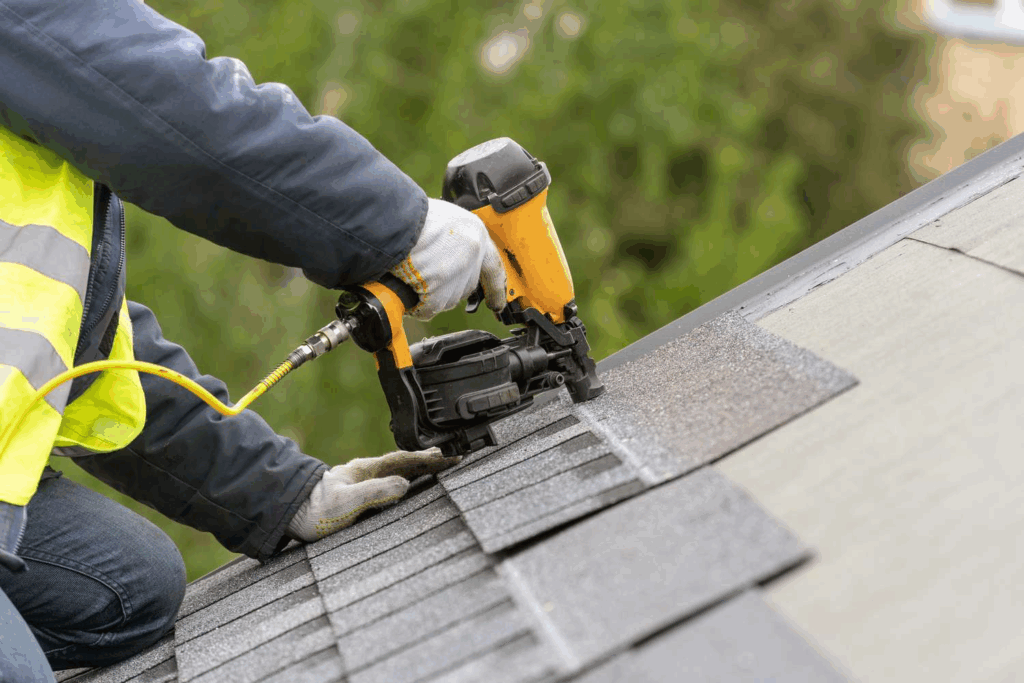Roof leak damage can quickly escalate from a minor inconvenience to a serious structural issue. Whether it’s a steady drip during heavy rain or visible water stains on your ceiling, ignoring the problem can lead to mold growth, insulation damage, and compromised structural integrity. Choosing the right contractor to handle roof leak repairs is essential—not just to fix the immediate problem but to ensure long-term protection for your home. With countless contractors offering their services, the process of selecting the right one can feel overwhelming. Here’s how to make an informed decision and find a professional who will get the job done right.
Understand the Scope of the Damage
 Before you begin searching for a contractor, it helps to understand the nature of your roof leak. While it’s not necessary to climb onto the roof yourself, identifying where the leak is manifesting inside the home can give you an idea of the potential extent. Some leaks are caused by missing shingles, flashing issues, or clogged gutters, while others might result from poor installation or aging materials. Having a basic idea of the problem allows you to better communicate with prospective contractors and compare their proposed solutions.
Before you begin searching for a contractor, it helps to understand the nature of your roof leak. While it’s not necessary to climb onto the roof yourself, identifying where the leak is manifesting inside the home can give you an idea of the potential extent. Some leaks are caused by missing shingles, flashing issues, or clogged gutters, while others might result from poor installation or aging materials. Having a basic idea of the problem allows you to better communicate with prospective contractors and compare their proposed solutions.
Start with Local Recommendations and Online Reviews
Word-of-mouth referrals are one of the most reliable ways to find trustworthy contractors. Ask neighbors, friends, or coworkers if they’ve had similar work done and if they were satisfied with the results. Local contractors often rely on their reputation within the community, making them more likely to deliver quality service. Additionally, online reviews and ratings on platforms like Google or the Better Business Bureau can provide insight into past customers’ experiences. Pay attention not only to the overall score but also to how the contractor responds to negative reviews and how consistently they deliver satisfactory work.
Verify Licenses and Insurance
When hiring someone to repair roof leak damage, one of the most critical factors is verifying that the contractor is properly licensed and insured. A licensed contractor has met the necessary requirements to operate legally in your state or region, which typically includes demonstrating knowledge of building codes and safety practices. Equally important is proof of insurance. Roof work is inherently risky, and the right insurance protects both the homeowner and the workers in the event of an accident or property damage. Always ask to see documentation and don’t hesitate to contact the issuing agencies to confirm validity.
Assess Experience and Expertise
Roofing is a specialized field that requires a combination of skill, experience, and up-to-date knowledge. Not all contractors are equally equipped to handle leak repairs. Some may specialize in full roof replacements or new construction, while others focus on repairs and maintenance. Ask how long the contractor has been in business and whether they have handled similar types of leaks. A contractor who has dealt with roof leaks caused by storm damage, aging materials, or installation errors will be better positioned to diagnose and fix your issue efficiently.
Evaluate Communication and Professionalism
The right contractor should make you feel confident, not confused. Pay attention to how clearly they explain the repair process, how quickly they respond to your inquiries, and whether they provide written estimates and contracts. Transparent communication is a strong indicator of professionalism. Contractors who are willing to walk you through their findings, offer a detailed breakdown of costs, and outline timelines for completion demonstrate a commitment to customer satisfaction. Poor communication, on the other hand, often leads to misunderstandings, hidden fees, and project delays.

Compare Estimates but Don’t Focus Only on Price
It’s wise to obtain estimates from multiple contractors before making a decision. However, choosing the lowest bid is not always the best route. Extremely low prices can be a red flag indicating subpar materials, lack of insurance, or rushed workmanship. Compare the details of each estimate, including labor, materials, and warranty offerings. Look for value rather than just affordability. A slightly higher investment in a reputable contractor often results in higher-quality repairs and longer-lasting results.
Understand the Warranty and Post-Repair Support
A reliable contractor stands behind their work. Ask what kind of warranty is offered for the repairs and what it covers. Some warranties may be limited to a specific time frame or only cover certain materials. Others may include workmanship guarantees. A strong warranty gives you peace of mind that the contractor will return to address any issues that arise shortly after the repair. Be sure to get all warranty information in writing as part of your agreement.
